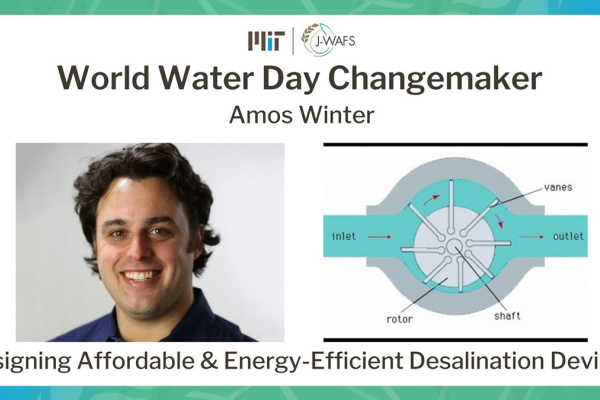Our Research A sliding vane energy recovery device for photovoltaic-powered brackish water reverse osmosis desalination
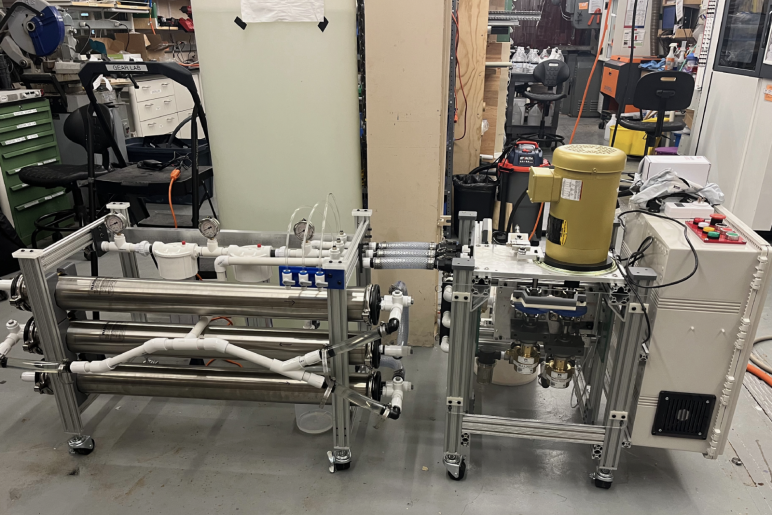
Reverse osmosis energy recovery device experimental apparatus
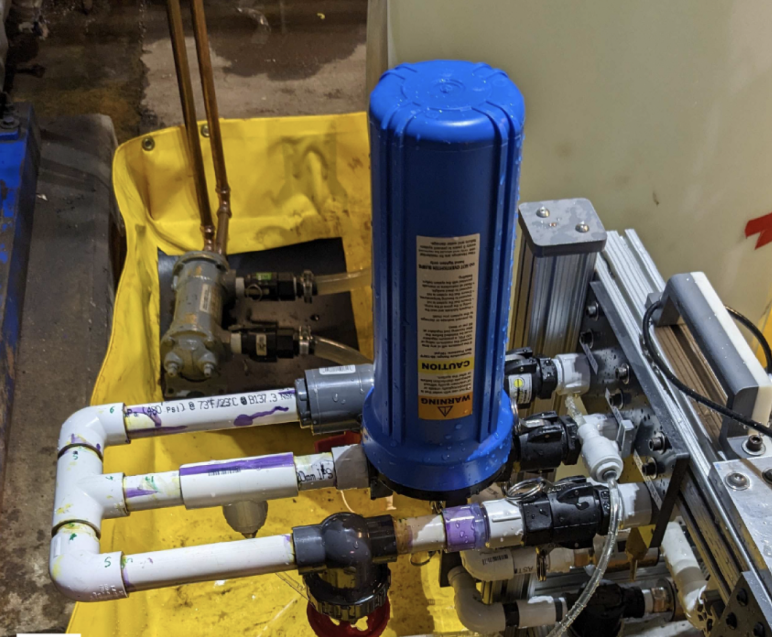
The RO-ERD simulated RO train
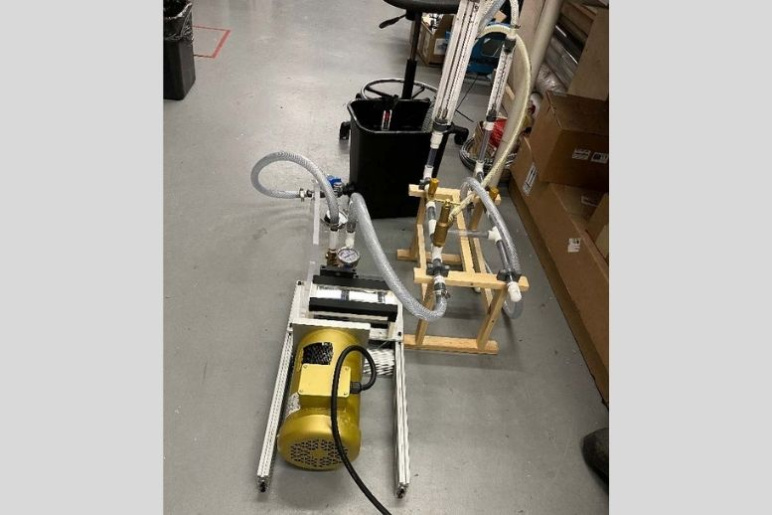
Experimental setup for characterizing pump performance a high speed.
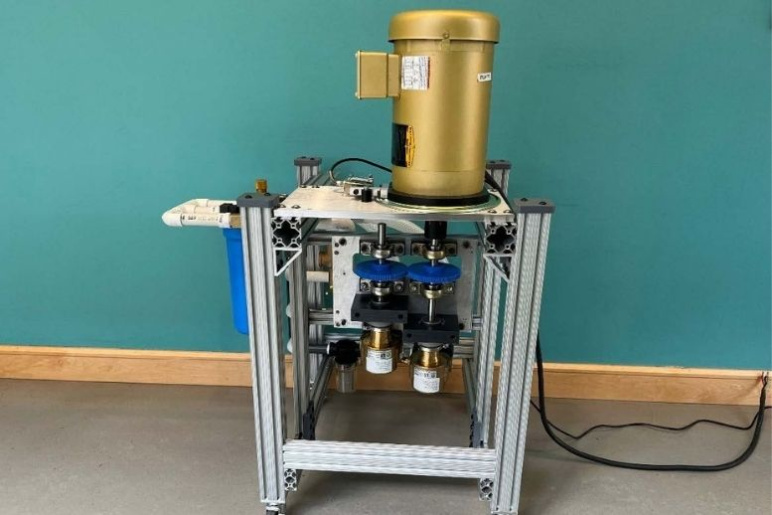
Detailed view of the experimental apparatus used to measure motor torque directly
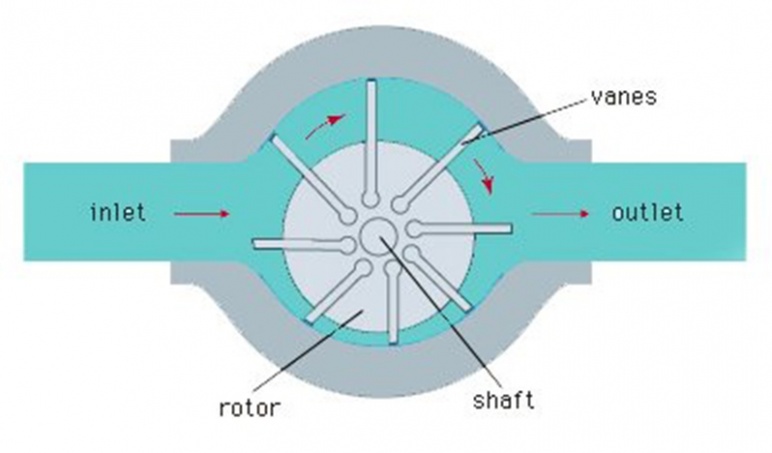
Basic schematic of a sliding vane pump. Image Credit: Sahil Shah
Principal Investigator
Amos Winter
- Ratan N. Tata Career Development Professor
- Professor
- Department of Mechanical Engineering
Amos Winter is a professor of mechanical engineering at MIT. His research focuses on machine and product design for developing and emerging markets. Prof. Winter earned a BS from Tufts University (2003) and an MS (2005) and PhD (2011) from MIT, all in mechanical engineering. He received the 2010 Tufts University Young Alumni Distinguished Achievement Award, the 2012 ASME/Pi Tau Sigma Gold Medal, was named one of the MIT Technology Review’s 35 Innovators Under 35 (TR35) for 2013, and received the MIT Edgerton Faculty Achievement Award and an NSF CAREER award in 2017.
Challenge:
How can we recover wasted energy in the brine stream of brackish water reverse osmosis (BWRO) systems to make photovoltaic (PV)-powered units much more affordable for developing countries?
Research Strategy
- Test a new energy recovery device (ERD) made from off-the-shelf sliding vane pumps on a real RO system to measure long-term performance, efficiency, and degradation of the components
- Perform an autopsy of the prototype system in bullet 1 to determine where improved lubrication, friction reduction, filtration, and membrane preservation may be required in real-life RO systems utilizing sliding vane ERDs
- Investigate sliding vane ERD architectures that can reduce friction and improve system efficiency
- Articulate the parametric design theory for how to create sliding vane ERDs for desalination systems at various size scales and water compositions
Project description
Regions around the world that don’t have access to safe or abundant supplies of freshwater often rely on small-scale, decentralized groundwater desalination devices that use reverse osmosis. Unfortunately, these systems are extremely energy intensive, and therefore are both expensive to operate and environmentally unsustainable. This research team is working on a new design for desalination devices for settings such as these that has the potential to make reverse osmosis water treatment more affordable and better able to be powered by renewable energy. He and his research team will focus on affordability, energy efficiency, and ease of use in their design to ensure that the resulting technology is accessible to poor and rural communities around the world.
Outcomes
- Performed a long-term performance test of pump and prototype energy recovery device coupled with a full reverse osmosis system, lasting 100 hours. This test successfully desalinated synthetic brackish groundwater with a consistent production rate and recovery ratio, and validated the projected energy savings of the ERD
- Performed a long-term maintenance interval test which found that the ERD can reach projected energy savings, however system redesign is necessary to reduce system wear before the concept is ready to be used in village scale RO systems
- Built and tested a new experimental apparatus with improved sensors and data acquisition systems, designed to be coupled to a full reverse osmosis train for long-term testing and characterization and installed the system in a new testing location at MIT Central Utility Plant
- Disseminated results to the scientific community in a conference paper submitted to the 2024 International Design Engineering Technical Conference
News
Additional Details
Impact Areas
- Water
- Climate & Sustainability
Research Themes
- Water Purification & Desalination
- Sustainability & Adaptation
- Equity & Access
Year Funded
- 2021
Grant Type
- Seed Grant
Status
- Completed

